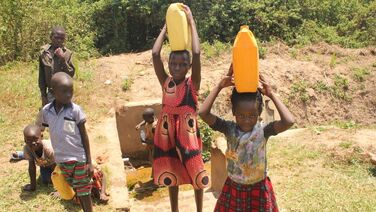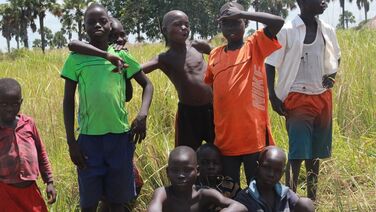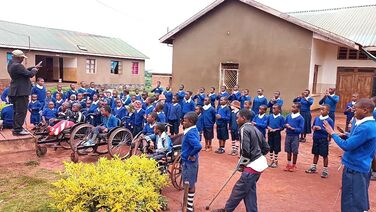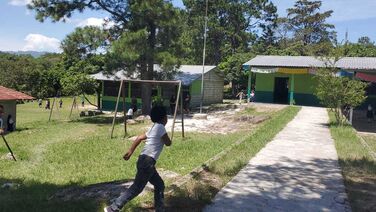
Nazigo Demonstration School
Nazigo Demonstration School hosts 570 primary and nursery school students, both day and boarding, taught by 22 teachers throughout 13 classrooms.

Okir Ladek okwok
Okir Ladek okwok, located in the Koch-Goma sub-county of Nwoya district in Uganda, has a total enrollment of 425 students.

Pabidi
Pabidi, located in the Pabbo sub-county of Amuru district in Uganda, has a total enrollment of 441 students.

Pamin-lok oola
Pamin-lok oola, located in the Owoo sub-county of Gulu district in Uganda, has a total enrollment of 460 students.

Pommerin Primary School
Pommerin Primary School is situated in the village of Pommerin, within the Kilolo District of the Iringa region. As a public school, it is dedicated to inclusive education. The school serves a total of 667 students, including 111 with special needs. To meet the diverse requirements of its students, Pommerin Primary employs 22 teachers, who are trained in both general education and special needs education. The school exemplifies Tanzania's national strategy for inclusive education, which aims to transform the education system to accommodate all learners in mainstream settings by addressing and responding to their varied needs.Pommerin Primary School includes a dedicated Special Education Unit that focuses on supporting students with disabilities, such as hearing impairments, physical disabilities, and visual impairments. This unit highlights the school's commitment to providing the necessary educational support for these students. Through its inclusive approach, the school plays a vital role in promoting equitable access to education for children with disabilities in the region. Additionally, the school should ensure an inclusive and supportive environment for all students, which includes access to safe, clean water.

Prathmik Balika Vidhyalaya Jelu
The proposed project will be an integrated effort to improve health and nutrition awareness among children. Availability of safe drinking water, Bio sand filters and regular check-ups to monitor the health of the students. This school has already received water and sanitation facilities.

Prathmik Vidhyalaya Baadi
The proposed project will be an integrated effort to improve health and nutrition awareness among children. Availability of safe drinking water, Bio sand filters and regular check-ups to monitor the health of the students. This school has already received water and sanitation facilities.

Prathmik Vidhyalaya Kerala Bhakar
The proposed project will be an integrated effort to improve health and nutrition awareness among children. Availability of safe drinking water, Bio sand filters and regular check-ups to monitor the health of the students. This school has already received water and sanitation facilities.

Primero de julio
Location: Arenales, Chinacla, La Paz, HondurasBenefited Population: 75 students & 3 teachersPrimero de julio is located in Arenales within the municipality of Chinacla and provides education for 75 primary school students.